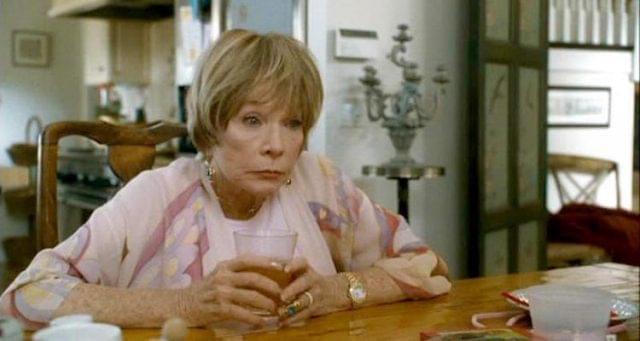
Newspapers, radio stations, relationships — these are just a few of the things that “The Last Word” focuses on despite not understanding how they work. It’s bold to write about things you’re unfamiliar with, but that’s what first-(and-probably-last)-time screenwriter Stuart Ross Fink has done, his pat, tidy sitcom brought to superficial life by director Mark Pellington (“I Melt with You”).
Meet Harriet Lauler (Shirley MacLaine), a wealthy retired businesswoman and cranky control freak in a small California town who capriciously decides one day that her greatest desire in life is to be spoken of glowingly in her obituary. That will be tricky since everyone hates her — her ex-husband (Philip Baker Hall), her estranged daughter (Anne Heche, only in one scene), everyone she ever worked with — so she forces Anne (Amanda Seyfried), the local paper’s full-time obituary writer (not a real position at a small-town paper) to help her shape her legacy.
Anne doesn’t like hanging out with a haughty 80-year-old as she does some late-in-the-game good deeds to earn praise in her obituary, but she has no choice. (Her editor, played by Tom Everett Scott, is obliged to let Harriet commandeer his employee because Harriet’s company used to buy a lot of ad space.) In an act of undisguised cynicism and condescension that the film doesn’t treat with as much scorn as it should, Harriet looks for a disadvantaged young black girl to mentor and finds Brenda (AnnJewel Lee), who sees through Harriet’s motives but is charmed by her anyway. Anne faithfully documents everything as if she were writing a book-length biography rather than an 800-word obituary.
Just as suddenly as she decided a glowing obit was her life’s ambition, Harriet also decides to become a radio DJ. Even though she stopped buying popular music 40 years ago and has no experience, the manager at the local independent station puts her on the air immediately. She’s just SO GOOD at coming up with the right songs and the right order to play them in, you guys. So good. After her first shift, Harriet gets a round of applause from the staff, including the DJ whose job she took. The station manager also ends up dating Anne, a character who didn’t need a love interest but got one because Fink the screenwriter wanted to cross off every trope on his list.
The film offers not a moment of authentic human interaction or insight but instead puts one-dimensional characters in phony situations that play out with wearying predictability. It’s all wrapped up neatly with shallow platitudes, the insincerity of which cancel out the pleasure of MacLaine’s feisty performance.
D+ (1 hr., 48 min.; )





